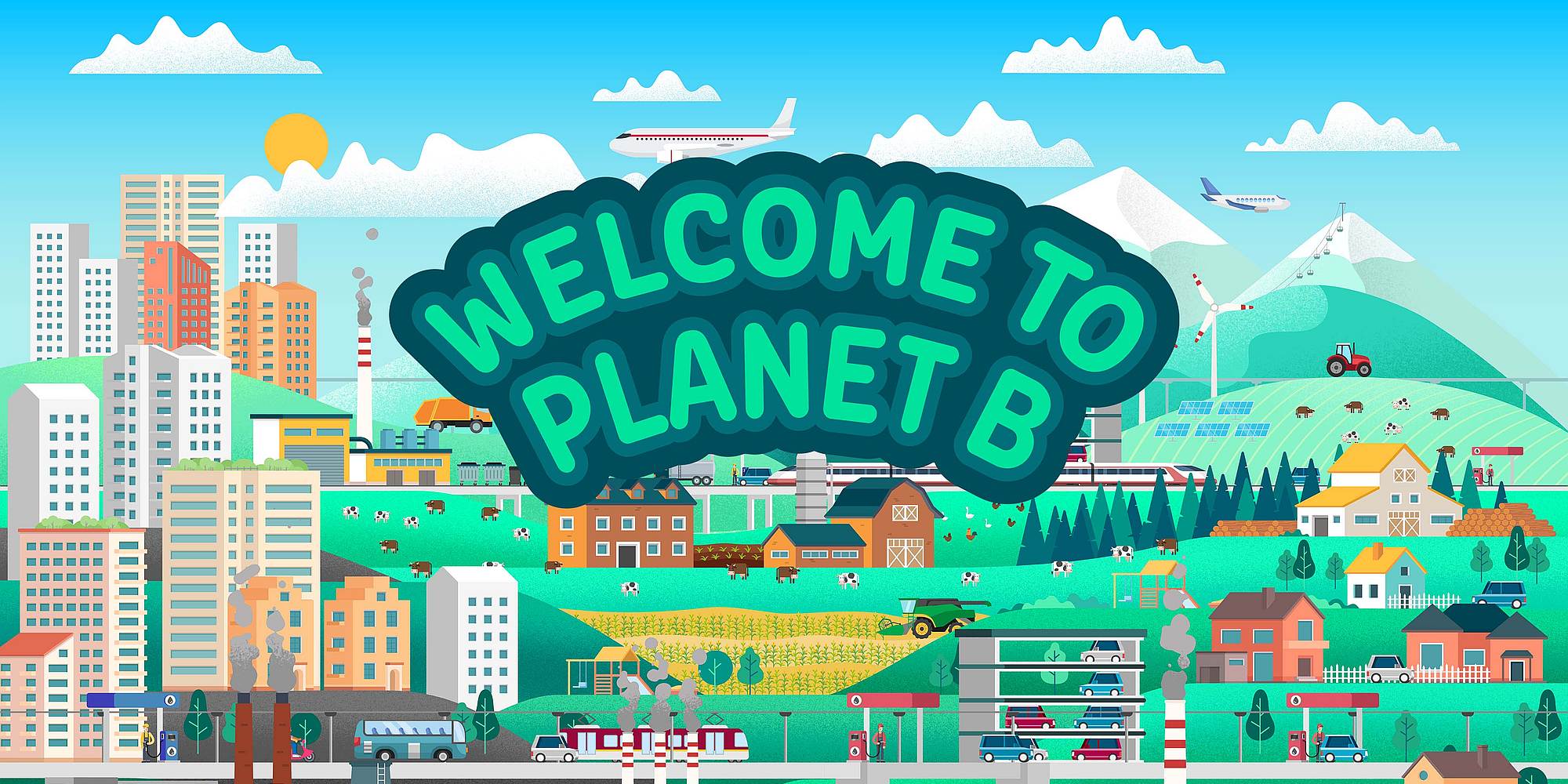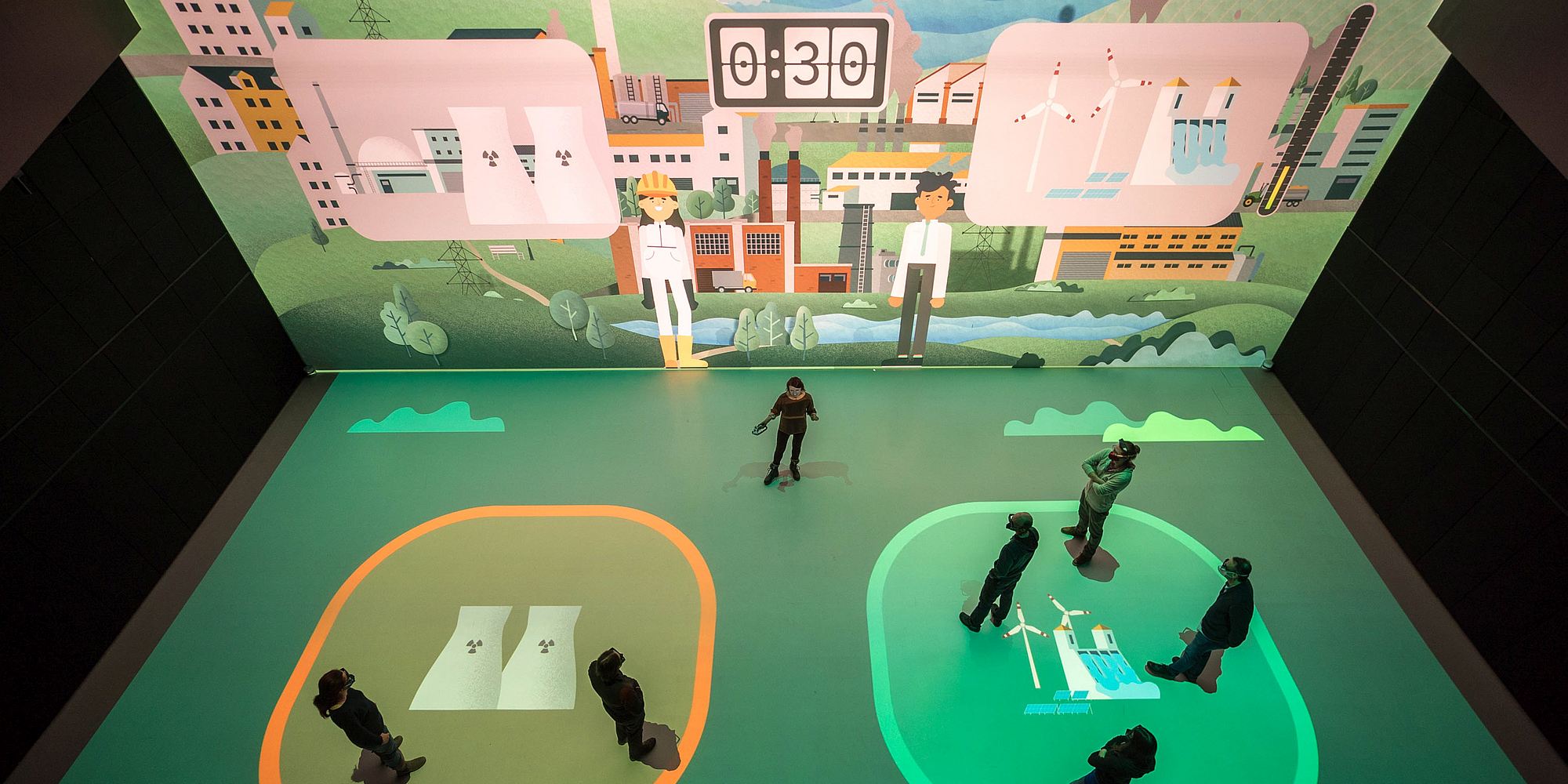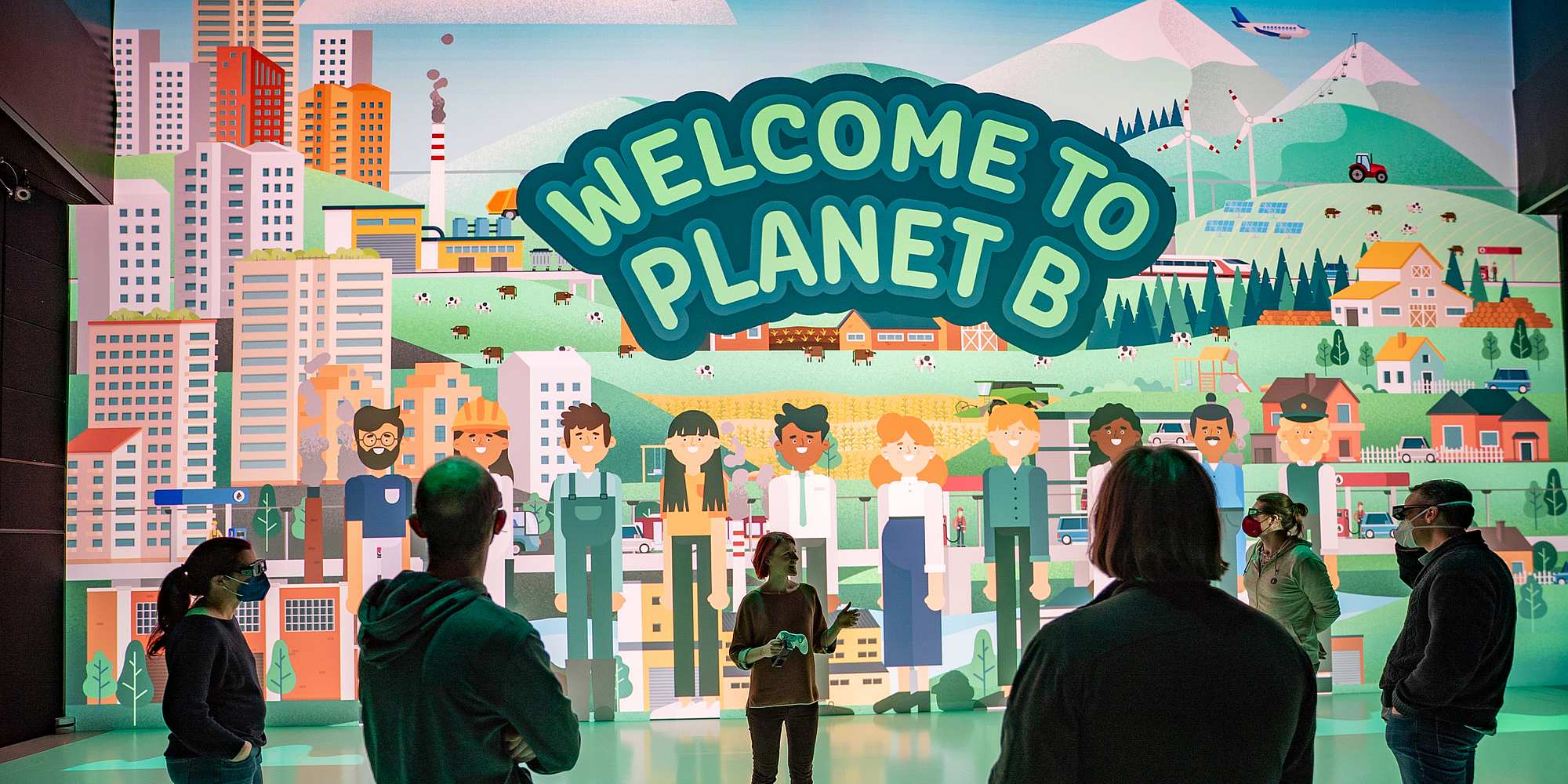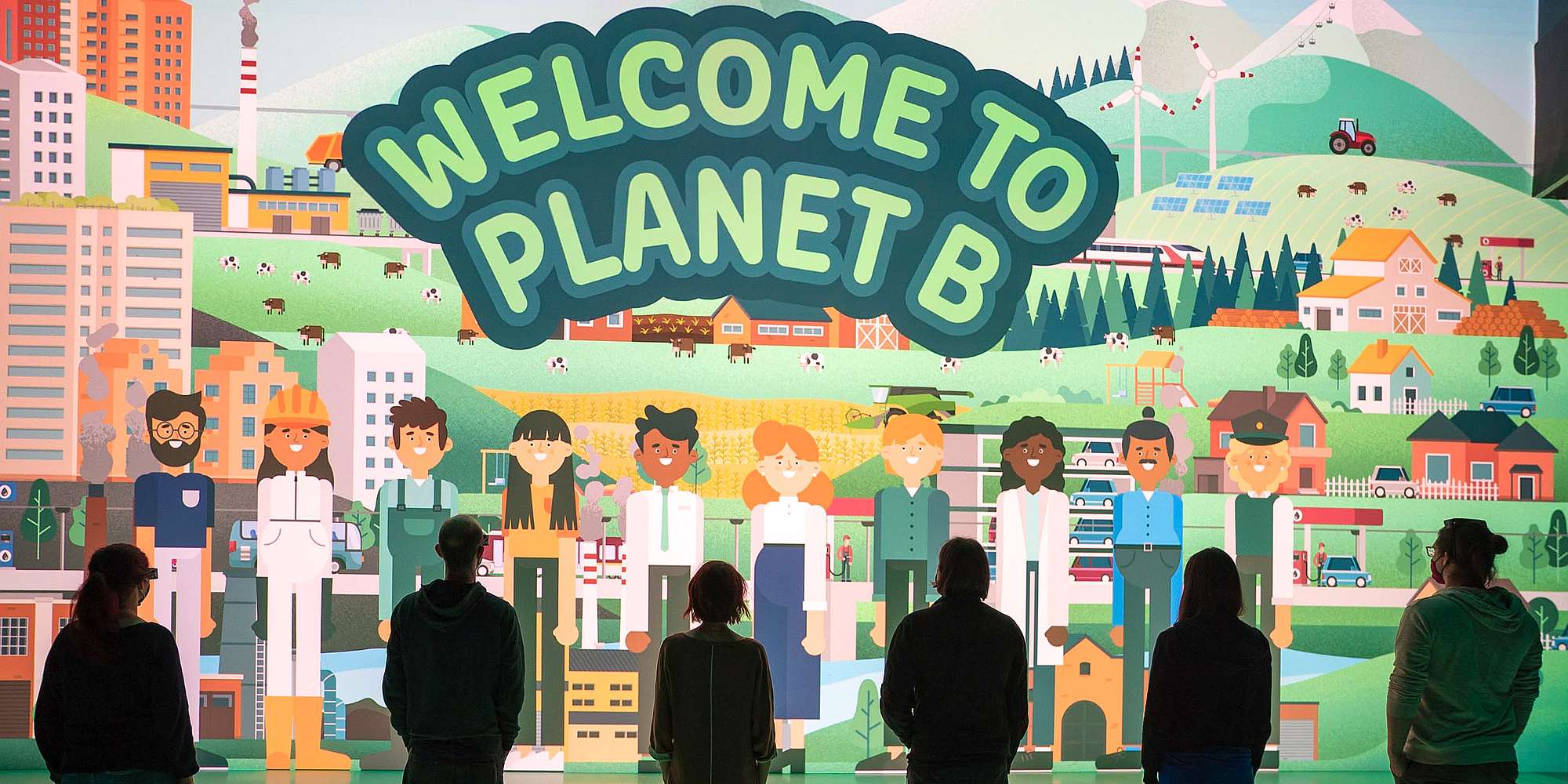E-vehicle or public transport? Nuclear power or renewable energy? Lab meat or vegan diet? The climate crisis challenges us with questions to which there are no easy answers. Important decisions await, and every action we take today has implications far into the future. Wouldn’t it be helpful to test our choices in virtual reality to better assess their impact? Welcome to Planet B!
In 2022, a special program highlight awaited visitors in the newly updated Deep Space 8K: In the fictitious reality of Welcome to Planet B, participants are confronted with our climate dilemma. With the goal of reducing CO2 emissions, they are presented with two alternatives for relevant areas of life on Planet B and thus face a difficult choice together – because the projections and climate models of the virtual planet also apply to our real world.
The visitors are invited to Planet B by a moderator who introduces them to several key topics that influence CO2 emissions throughout the game. For each subject, the participants are asked to choose between two options, for example: Urban living or shared rural home? Stepping onto one of two areas on the floor, the majority decides which path humanity takes on Planet B.
The position of the visitors is detected by laser tracking and thus calculated into a virtual baseline scenario. The effects of all these democratic decisions are visualized directly in the alternate world. As a finale, the participants travel to the year 2100 to experience the consequences of all their actions on Planet B.
Playful approach with real-world data
The project emerged from Ars Electronica’s SDGxARS initiative which aims to implement the Sustainable Development Goals (SDGs) within the institution. The initiative focuses on two key topics: gender equality and climate protection. Ars Electronica Center has already devoted a great deal of attention to the topic of climate protection in particular, for instance with the exhibition There is No Planet B, which was realized in cooperation with the Klima+Energie Fonds.
For the development of Welcome to planet B, frequently discussed, controversial or polarizing topics and their potential impact on greenhouse gas emissions were identified. Potential solutions that the system offers to visitors were calculated based on available data, facts and figures. And they come from official Austrian sources: Federal Environment Agency, Federal Ministry for Climate Protection, Environment, Energy, Mobility, Innovation and Technology (BMK), Statisitk Austria, but also the report of the Intergovernmental Panel on Climate Change (IPCC) and other scientific publications. Local experts, Oliver Schrot, City of Linz Climate Coordinator, and Norbert Breitschopf, Sustainability Management at Linz AG, supported the Ars Electronica Futurelab’s team.
With Welcome to Planet B, researchers from the Ars Electronica Futurelab present the Deep Space 8K audience with a series of potential future scenarios and decision-making options. In this way, the program offers an opportunity to question one’s lifestyle. In the fictitious world, one thing becomes apparent to us in a very three-dimensional way: In order to prevent a climate catastrophe on our planet and look forward to a positive future worth living in, we’ve got to make some changes. And we have to make them now.
Credits
Ars Electronica Futurelab: Friedrich Bachinger, Kerstin Blätterbinder, Arno Deutschbauer, Roland Haring, Susanne Kiesenhofer, Johannes Lugstein, Nicolas Naveau, Maria Pfeifer, Johannes Pöll
Ars Electronica Center: Michaela Obermayer
PARTNER: Oliver Schrot (Stadtklimakoordinator/Klimastabstelle Linz), Norbert Breitschopf (Nachhaltigkeitsmanagement/Linz AG)



